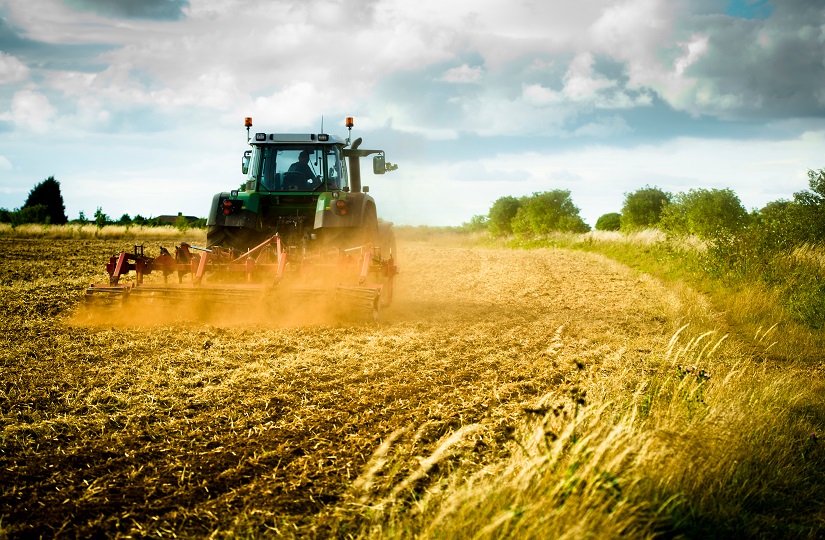Land Business Update | Week Commencing 3rd October
Welcome to our update on key land management, farming, planning and energy issues.
FARMING
Government carrying out ‘rapid review’ of agricultural policy
The government, through Defra, has issued a statement saying that it does not ‘intend to go back on its commitment to the environment’ or delay proposed Environmental Land Management schemes. It says that it is looking at how best to deliver the schemes to see where improvements can be made. Many stakeholders will be watching the outcome of the rapid review carefully.
The CLA has restated its commitment to ELM and called on the government to end the media speculation that is damaging confidence amongst its members and other land managers. The CLA, rightly, says the government does not need to choose between feeding the nation and protecting the environment – that both can be done.
The GWCT has taken a balanced, considered view, saying that it is only natural for a new government to review how they might improve them. It also makes the point that any future policy must be attractive to land managers, pay them adequately and make the process simple and effective.
Welsh Government publishes its Agriculture Bill
The Bill will be the key legislation for agricultural policy in Wales from 2025, giving powers to relevant bodies to operate an agricultural policy. It is expected to be enacted in summer 2023. It provides more details on the legislative basis for the proposed Sustainable Farming Scheme, set to replace the Basic Payment Scheme, but does not mention any provision for the National Minimum Standards for farming, which will replace the current cross-compliance requirements. Secondary legislation may be required to rectify this. In its support for agriculture, the Bill is quite environmentally focused with, for instance, Clause 8 giving powers to ministers to ‘[encourage] the production of food in a sustainable manner’ and ‘maintaining and enhancing the resilience of ecosystems’. The Bill also includes provisions in relation to forestry and to ban the use of snares and glue traps.
Lowest global grain stocks in a decade expected for crop year 2022/2023
EU production is expected to hit a 15-year low, despite recent deals put in place by the United Nations allowing Ukraine to export its grain (reduced by 30% compared to previous years). Globally many countries have suffered unprecedented weather conditions leading to poor harvests – more than Ukraine exports can balance out. The US is expecting its lowest maize crop in three years. The International Grains Council estimates that by the end of crop year 2022/23, the world’s buffer stocks of maize will be at its lowest since 2010/2011, sufficient to cover only 80 days’ consumption. This demonstrates the increasingly complex landscape that farmers have to work in due to impacts of climate change.
Good pollination can boost oilseed rape yield and health
Lack of pollination leads to rape plants that are taller, less structurally dense and which produce fewer pods and fewer seeds per pod – so yield less. The researchers from the University of Edinburgh say that growers can treat pollination as another type of agricultural input: oilseed plants that are suffering from insufficient pollination can be identified, through traits such as prolonged flowering or tall leggy plants; pollination can be boosted by planting floral-rich field margins to attract wild pollinators or by introducing managed honeybees.
Spring hay yields forecast to reduce significantly due to climate change
Spring hay yields in southern England could be reduced by 20-50% between 2020 and 2080 due to warmer and drier years due to climate change, according to new research by Rothamsted Research and the University of Reading. It used data from 1902 to 2016 from the Park Grass Long Term Experiment. Hay yields were modelled under various future climate scenarios. Other interesting findings are that hay yields were affected by productivity in the previous year, so that a poor yielding year is likely to be followed by another one. Also, the research revealed that hay yields have fallen by around 35% over the last century. Optimum spring weather is colder and wetter than the conditions that we are generally seeing now.
ENERGY
Energy Bill Relief Scheme for all non-domestic customers in the UK
This energy scheme provides a discount on the wholesale price of gas and electricity. It is the equivalent to the Energy Price Guarantee put in place for households. The discount is available to all non-domestic customers, including businesses, charities and the public sector and will be automatically applied to energy bills by energy providers. It sets a Supported Wholesale Price, which is expected to be £211/MWh for electricity and £75 per MWh for gas, less than half the wholesale prices anticipated this winter. It applies to all fixed contracts agreed on or after 1 April 2022, as well as to deemed, variable and flexible tariffs and contracts. The scheme will apply to energy usage from 1st October to 31st March 2023 for an initial six-month period. A similar scheme will be applied in Northern Ireland. Equivalent support will also be provided for consumers not connected to either the gas or electricity grid, who use heating oil or alternative fuels. There is a separate scheme, the Energy Price Guarantee, for domestic users, which supersedes the existing price so that a typical household will pay on around £2,500 a year for energy for the next two years; this is in addition to the £400 energy bills support scheme announced under the previous government and there are also additional payments for households on income support (the Warm Home Discount Scheme).
Hydrogen unlikely to play a major role in home heating
A review of 32 studies of hydrogen has concluded that there are too many technical difficulties to overcome to make hydrogen a viable and economic low-carbon heating, either as a full replacement for gas or as a blend with natural gas. It concluded that hydrogen is a lot less efficient and more expensive than alternatives such as heat pumps, district heating and solar thermal. Using hydrogen will require changes to pipework in houses. The review was carried out by the Regulatory Assistance Project, an energy thinktank. A separate study by Cornwall Insight concluded that hydrogen would be close to twice as expensive for home heating as using gas alone, but the Energy Networks Association, which represents the UK’s energy operators, said that many different solutions will be needed, so hydrogen, electrification and other technologies need to be looked at. Hydrogen is still consider a possible fuel for heavy industry and shipping.
ENVIRONMENT
Government failing to produce detailed climate policies according to landmark ruling
The government will need to revise its climate strategy to show how key emissions reductions targets will be met, after the High Court found that the government’s Net Zero Strategy did not comply with the requirements of the Climate Change Act 2008. During the case it emerged that the government’s policies would only deliver 95% of the 2033 – 2037 carbon reduction target and that the government did not demonstrate the contributions of individual proposals and timescales for delivery. The government will have to update its climate strategy to include a quantified account of how its policies will achieve climate targets and present the results to MPs.
FORESTRY
Two new Woodland Creation Grant schemes in Wales
The WCG, which is available for larger and small (<2ha) schemes, provides funding for tree planting and the maintenance of the trees. £2m is available for the first application window, which closes on 14th October, and the scheme will then open for applications every three months, with a further £30m available. The scheme is part of the transition to the Sustainable Farming Scheme. NB A Woodland Creation Plan, verified by Natural Resources Wales, is required before an application can be made.
RURAL ECONOMY
Wales has launched a consultation on the introduction of a new tourism tax
The Welsh Government’s proposals would give local authorities the power to introduce a visitor levy in their area at their discretion. This new local tax would be used to fund the delivery of key local services and infrastructure that tourists benefit from when visiting. Although some local people and businesses may be wary of the impact on the visitor economy, many countries across Europe already have tourism taxes, including France and Germany. A consultation is open for feedback until 13th December on the design of the levy, such as who should pay for it, who should collect it and how may can be enforced. Separately, Wales has introduced legislation to eradicate single-use plastics, in a move towards ‘a plastic-free Wales’.






